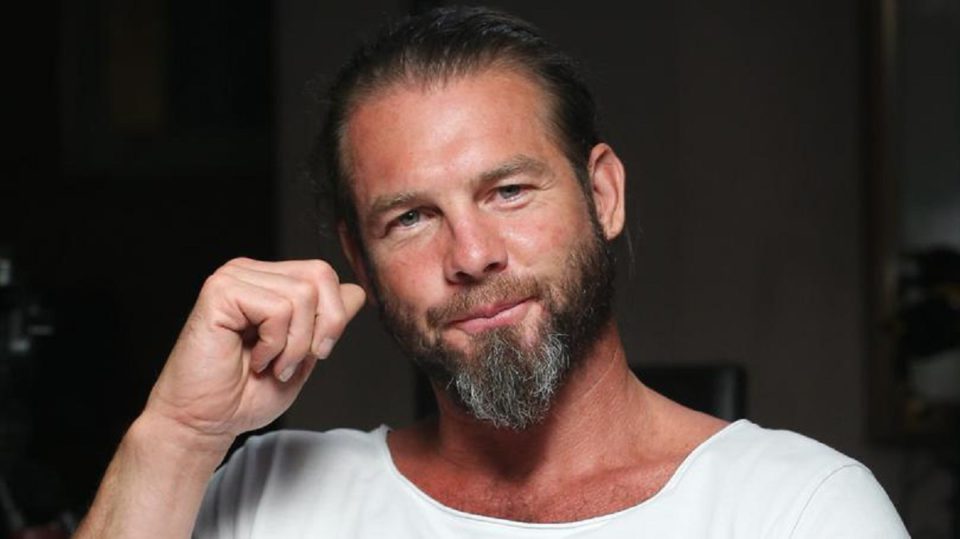Ben Cousins is a former professional Australian footballer who played for West Coast and Richmond in the Australian Football League (AFL). He was also selected six times in the Australian team and represented his homeland in the International Rules Series. For four seasons, he was West Coast club champion and captain for five seasons. One of the personal details revealed about this celebrity was that he allegedly doesn’t have access to his children after his marriage dissolved. For more personal, career, childhood, and controversial facts, keep reading!
Who Is Ben Cousins? Where Is Ben Cousins Now?
Awards and recognition:
During his 12-year, 238-game career with West Coast, Ben Cousins won several of the league’s top individual awards, including the Brownlow Medal, Most Valuable Player, and Premiership Medallion.
According to journalist Mike Sheahan, Cousins is one of the fifty greatest players of all time.
Controversy with drugs, breaking traffic laws, and fines:
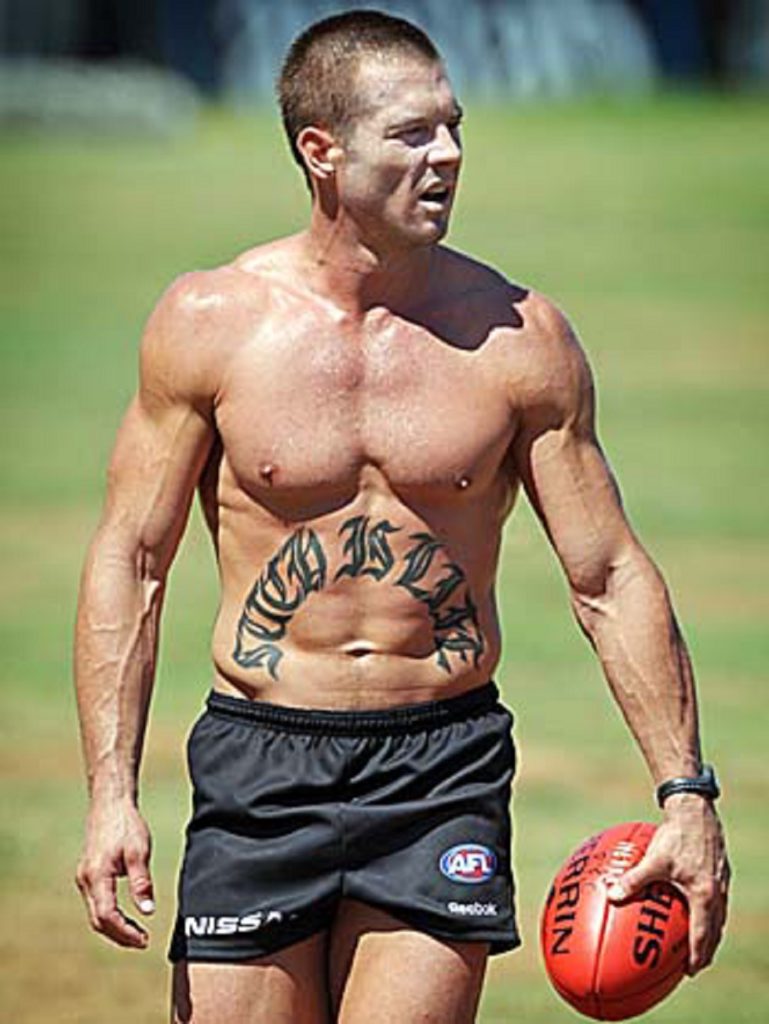
Cousins’ football career was sadly clouded negatively by highly publicized off-field incidents involving recreational drug use, traffic convictions, and association with criminal elements.
Cousins’ fall from grace, has been one of the saddest stories in the AFL, with the former West Coast captain battling drug addictions and in and out of jail since retirement. Prior incidents, while he was playing, include being repeatedly fined or sanctioned by West Coast, the events culminated in his contract being terminated in October 2007.
By November of 2007, Ben Cousins was officially banned from the AFL for a year by the AFL Commission for “discrediting the game”, and this was tough for everyone in his life to hear. Cousins co-produced a documentary titled Ben Cousins’ Such is Life: The Troubled Times, saying he hoped it would serve as a warning against drug use. Released days after his retirement, it became “one of the most-watched documentaries in Australian history”.
After 2007, there were many predictions that he would remain in the draft and fortunately, Richmond claimed Cousins with the final pick in the 2008 draft. Here, he played 32 games in two seasons for the club, retiring from the AFL at the end of the 2010 season.
After his retirement from football, Ben Cousins bravely admitted that he continued to struggle with his drug addiction and run-ins with the law. For a variety of crimes, the former athlete received a 12-month prison sentence in 2017.
He was even recently asked to serve time for stalking ex-partner Maylea Tinecheff and was released from Hakea Jail in Perth.
Ben Cousins family and childhood:
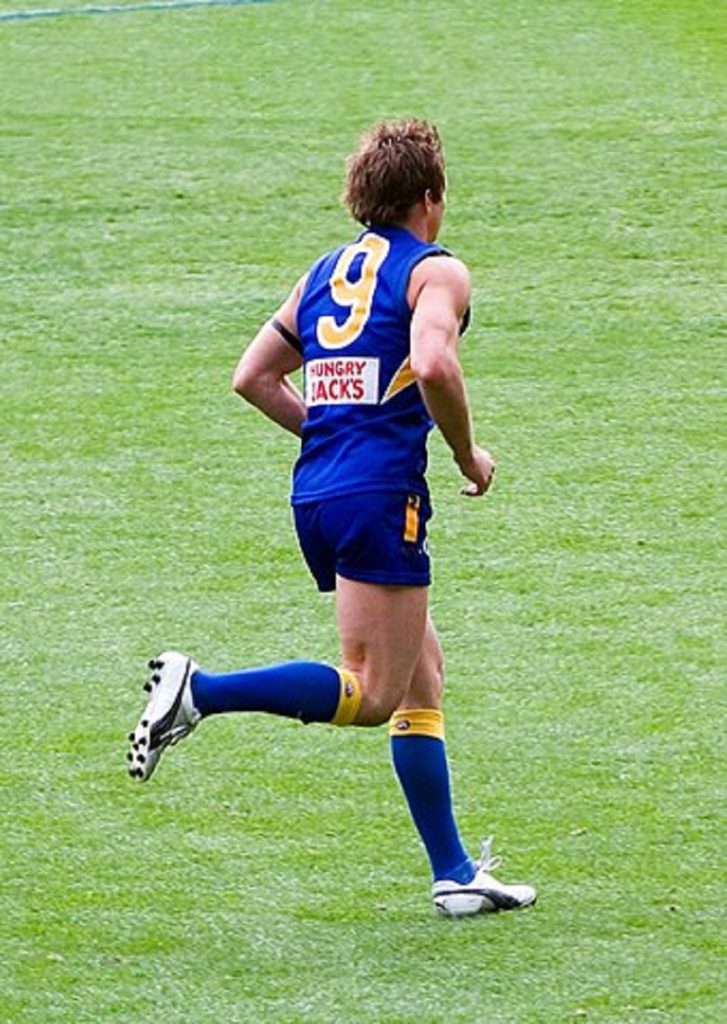
Was Ben Cousins inclined to develop an addiction, did it run in his family? Let’s find out.
Benjamin Luke Cousins who is famous as Ben Cousins was born in Geelong, Victoria, Australia on 30 June 1978. The future footballer was born to Stephanie and Bryan, an Australian footballer who had moved from Western Australia to play for Geelong Football Club in the Victorian Football League. At 18 months old, Cousins and his family moved back to Perth, Western Australia, where he was raised with his younger siblings, one brother named Matthew, and two sisters named Sophie, and Melanie.
Bryan, who is Cousins’ father, played 238 games for Perth in the WAFL and 67 games for Geelong in the VFL during the 1970s and 1980s. We do not know whether alcoholism or drug abuse was prevalent in his family, but we do sympathize with victims of addiction.
Early football/soccer career:
Cousins played youth soccer for his private school, Wesley College and for the Bull Creek-Leeming Junior Football Club and in his final year at his private school Wesley in 1995, he was recruited to join East Fremantle Football Club’s senior team in the West Australian Football League (WAFL) and played for both his school and East Fremantle throughout the season.
Cousins was such a star that while he was still at school, three AFL teams vied to recruit him under the father-son rule. The teams were:
- the Geelong Football Club,
- the West Coast Eagles,
- and the newly formed Fremantle Football Club.
Geelong Football Club’s recruiting manager, Stephen Wells, said: “Ben looked up to Geelong because his dad played on the team and we tried everything to bring him here.”
However, Cousins preferred to remain in Western Australia, choosing the West Coast in October 1995.
Ben Cousins’s AFL career began by being compared to Brad Pitt:
At 17, a week after his 10th WAFL game for East Fremantle, Cousins played his first AFL game and kicked twice for West Coast against Geelong. Starting from 1996, he won the Rising Star Award and the Norwich Rising Star Award for his debut season in 1996, earning 15 votes from all six judges to beat Shannon Grant by one point.
Cousins’ popularity continued to rise over the following seasons so much so that by 1998, the Herald Sun ran a two-page feature in its centerfold about the 20-year-old Cousins, headlined “West Goes Wild Over Kid”.
Called “football’s answer to Brad Pitt”, the article portrayed Cousins as a sex symbol and when asked about the article, Ben said that popularity “comes with the territory… If you want to be a league footballer you have to accept that it’s part of the game.”
Sports agent Ricky Nixon contacted Cousins in 1998 to discuss managing his endorsement deals, because “he’s good-looking, he chose to stay in Perth and not play in Victoria, opposition coaches take notice of him and besides that, he is a future leader.
In 1999, the International Management Group, which managed sports stars such as Tiger Woods and Pete Sampras, said that they would like to sign Ben, as “there is no question that he is now in the top group of players and has great marketing potential.” … Apart from being an outstanding footballer, he is a quality young man.”
Ross Nicholas, marketing manager for West Coast, spoke of his marketability, saying: “He’s easily the most wanted Eagle… No player was, or is, as popular as Ben. His appeal is so diverse. Kids want his autograph and picture. Sponsors want him to sit next to them to push their product.”
“If Ben is managed well, the sky’s the limit for the footballer and they have to find the balance between his commercial potential and his contribution to the community. The club offers protection, but it is up to Ben what demands he submits to”.
Ben Cousins career in 1998 till 2000s:
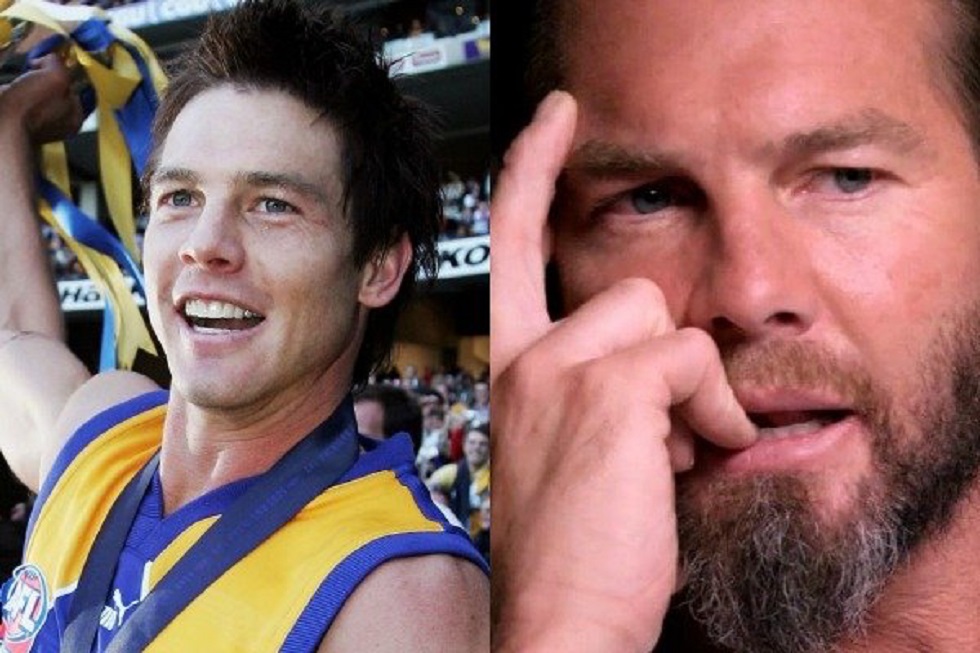
In 1998 Cousins was selected to the All-Australian Team and was runner-up at the West Coast’s Best and Fairest. He played in his first AFL final match in 1999, against the Western Bulldogs in a qualifying final at the MCG, and the year included another All-Australian Team selection and represented his homeland in the International Rules Series.
In 2000, Cousins signed a new three-year contract with the West Coast Eagles, worth nearly as much as 1 million dollars.
Winning his first “Best and Fairest on the West Coast”:
He played his 100th game amid speculation that he would take the captaincy from Guy McKenna, who was due to retire after the same game.
Cousins said, “After playing two or three seasons, you think about the possibility of a leadership role in the future, but the conversation around that has certainly come a lot sooner than I would have thought.”
In 2005, he was named co-captain:
Ben Cousins was named co-captain in 2001, sharing the role with Dean Kemp. He won his first club Best and Fair at the end of the season, a feat he repeated in 2002 and 2003, and was named to the All-Australian Team again in 2001 and 2002.
Kemp’s retirement saw Cousins become captain in 2002, a position he held until 2006.
West Coast coach John Worsfold stated the following in 2005 about Cousins’ fifth year as captain, “Ben he’s getting better consistently and with the way this group is going, I think he’s going to be a great leader.”
Battling multiple injuries and using painkiller injections for temporary assistance:
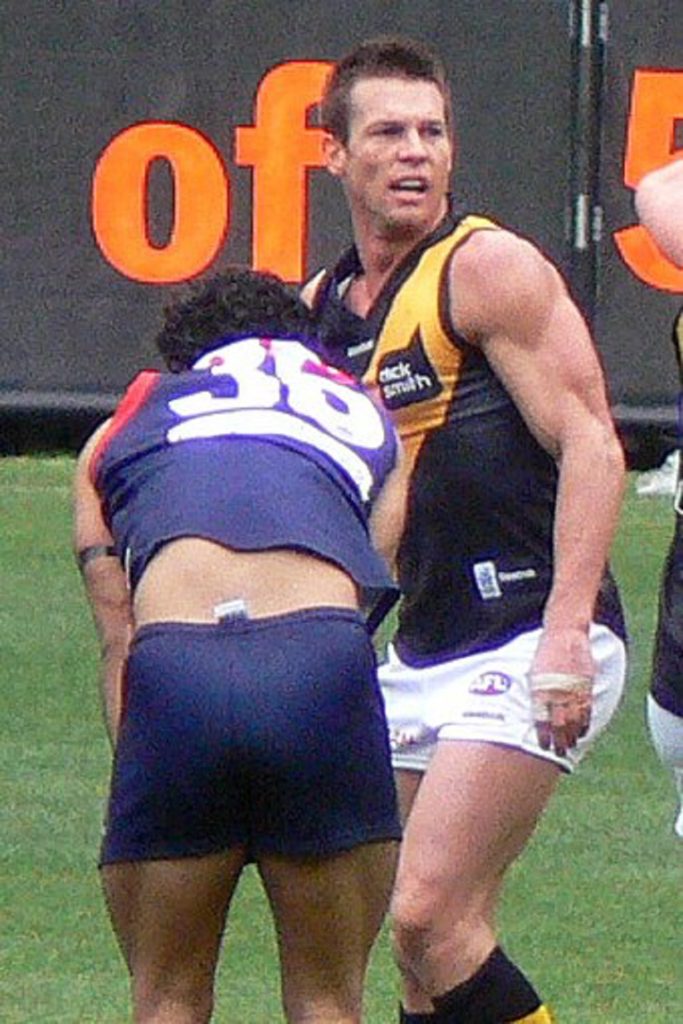
In early 2003, Cousins injured his ankle in a game against Hawthorn, but continued to play through five weeks of painkiller injections.
During Round 15, 2004, he injured his back and missed six games. Cousins said, “That injury is something I got over and I probably don’t stand a chance of having a relapse… The flip side is, because I’ve played 10 years of consistent AFL football, I probably have an older back.” than someone my age.”
In Round 1, he dislocated a finger in 2005, and missed a round after undergoing surgery.
West Coast CEO Trevor Nesbitt said, “There’s no question he’s at his best when he’s under pressure and he’s so resilient; he’s playing through injuries other players wouldn’t have.”
Between the years 2004-2006, Ben secured the Brownlow Medal and a place in the Grand Final:
Before the 2005 Grand Final, Ben showed so much promise and this promise was fulfilled after Cousins won the Brownlow Medal, the AFL’s highest individual player award, on September 19, 2005 with 20 votes, ahead of teammate Daniel Kerr with 19 votes and Nick Dal Santo with 18 votes.
After Cousins played his 200th game in July 2005, he received an “enthusiastic reception from 41,524 appreciative fans”, while video clips of his ten years on the West Coast were shown at the end of the game. Cousins was “arguably the highest-profile sportsman in Western Australia”, the youngest of 10 West Coast players to reach 200 games, and the 14th-youngest in AFL/VFL history.
West Coast lost the 2005 Grand Final to Sydney by four points, but in addition to his victory at Brownlow, Cousins received another West Coast Best and Fairest award. He also took home the Players’ Most Valuable Player award, with 159 votes compared to 99 votes accumulated by runner-up Matthew Pavlich. He was runner-up to Barry Hall in the Managers’ Player of the Year award, and in statistics, he had 612 eliminations, 24 goals and placed in the top five of the league in nine of 12 categories.
Exposure of drug abuse between 2006–2007:
In February 2006, Cousins resigned his captaincy after an off-field incident in which he fled from a booze bus. Five months later, he signed a new three-year contract with West Coast.
West Coast won the Grand Final in September 2006, defeating Sydney by one point yet Cousins was suspended indefinitely by West Coast on March 20, 2007 after missing two training sessions. This off-field misconduct got people questioning Ben Cousins’s behaviors and he finally was confirmed to have a substance abuse problem.
His team the West Coast Eagles offered Cousins a modified contract after returning from four weeks of rehab in Malibu, California, for substance abuse. The new contract which was modified for Ben was rumored to contain strict conditions such as paying the cost of rehab and taking regular drug tests.
Getting his captaincy relinquished but getting arrested for drugs:
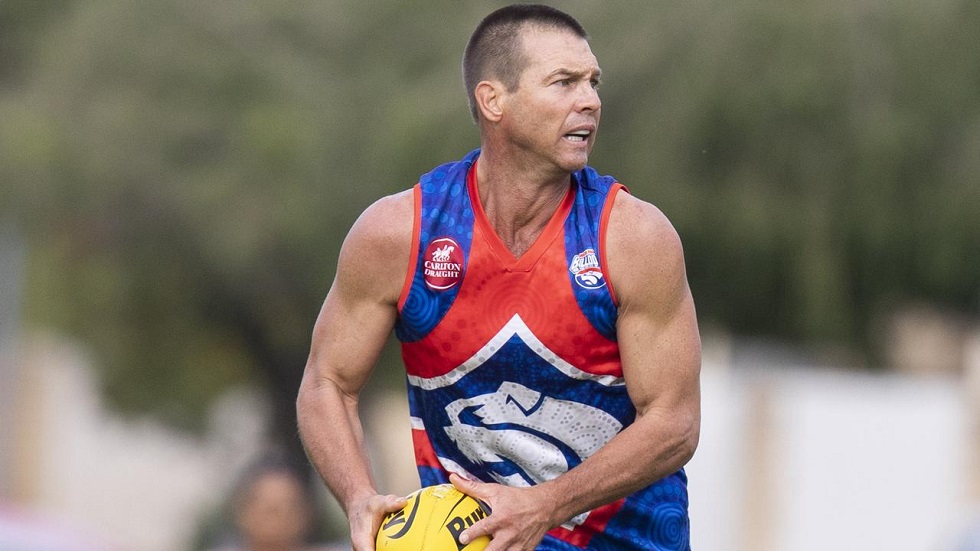
The AFL cleared Cousins to resume training with the West Coast Eagles, which he did since June 29, 2007.
However, he injured a hamstring in training, and was possibly getting familiarized with painkillers which delayed his return until the West Coast home game against Sydney on 21 July at Subiaco Oval. He had 38 eliminations and six marks in the game, inspiring West Coast’s victory.
But Cousins’ car was stopped in Northbridge and searched on October 16, 2007. Following this, he was arrested for drug possession and for refusing to submit to a blood test.
So this is the story of how Ben Cousins got delisted by West Coast Eagles as the team fired him the next day, which meant he was no longer a registered AFL player.
On November 19, he was also banned by the AFL Commission for 12 months under the act of “discrediting the game”.
While he was being formally delisted by West Coast, Eagles officials said he would never appear in an Eagles Guernsey again, on November 30. Infact, the AFL’s CEO Andrew Demetriou said it would be “extremely difficult” for him to ever return to the AFL.
He would return to the AFL, thanks to the Richmond Tigers called:
Between 2008–2010, Ben Cousins saw a career renewal playing for the Richmond Tigers. This move paid off for the team as Cousins’ AFL return helped break the attendance record for a Richmond vs. Carlton game.
Dubbed “The Man Who Sold the MCG”, the AFL Commission cleared Cousins to play AFL football in 2009 during the November season of 2008.
The AFL Commission could only clear him if he would once again submit himself to regular drug tests, including hair tests up to four times a year and urine tests up to three times a week.
Cousins attended drug tests in early November with no body hair long enough to sample.
All 3 teams would not draft Ben, here’s why:
Everything looked promising and various teams showed an interest in drafting Cousins for the 2009 season, including St Kilda Football Club, Collingwood Football Club, and Brisbane Lions.
One of the teams, namely Collingwood Football Club, sent a private investigator to Perth to follow Cousins for several days. After meeting with Victoria Police Chief Christine Nixon in October 2008, Collingwood announced that they would not recruit Cousins.
The following month after reviewing Cousins in November and consulting with interested parties for five months, St Kilda said they would not recruit him either.
The day before the national draft, Brisbane issued a press release saying they would not draft Cousins either and by November 29, 2008, Cousins went undrafted in the AFL National Draft.
Richmond Football Club and finally getting drafter again:
In December 2008, Richmond Football Club approached the AFL Commission prior to the AFL Pre-Season Draft. They went to the commission for approval to move injured senior player Graham Polak to their rookie roster in order to earn the second pick in the preseason draft, he said. would be used to select Cousins.
The AFL Commission had approved Essendon two years earlier to do something similar with Adam Ramanauskas during his battle with cancer. The commission, supported by the AFLPA and most of the clubs, denied Richmond’s request.
However, with his only Preseason Draft pick, Richmond selected Cousins (#6 overall) on December 16.
Richmond received an influx of new club members following this and Cousins trained with the team the following day in front of a crowd of around 2,000. Ben Cousins, unfortunately, injured his hamstring during the fourth quarter during Richmond’s Round 1 game against Carlton on March 26. He played one game for Coburg Football Club in the Victorian Football League before returning to the AFL in Round 7 against Brisbane.
Ben Cousins’s retirement didn’t shock the world:
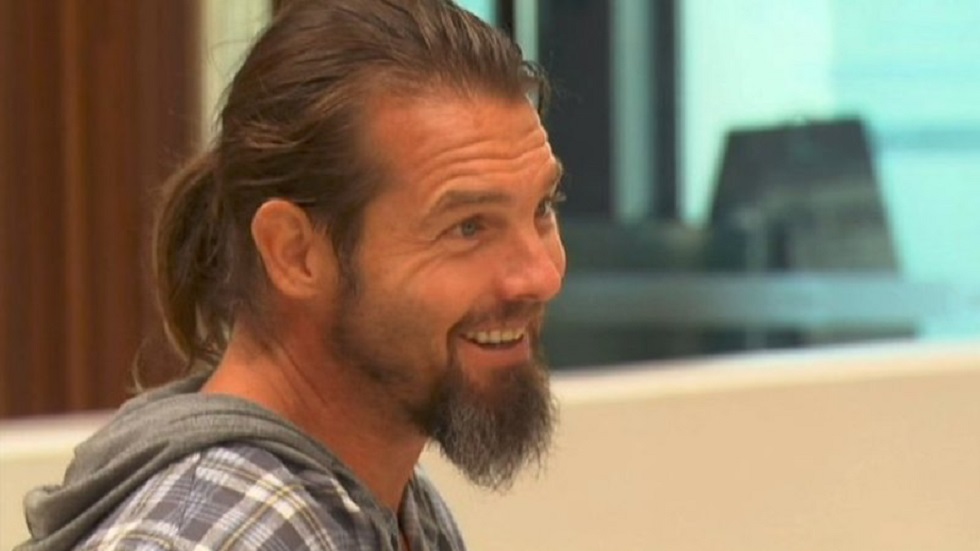
After weeks of media speculation and viewers gearing up for the news, Cousins announced his retirement in front of his family and a large crowd.
On August 17, 2010, he thanked everyone who had assisted him during his career and said: “I will always regret what I have put my family through. There is a lot of shame and regret. People wonder why I haven’t broken down and shed a tear (in public)”. He said this following his acknowledgment of his drug and breaking the law run-ins.
“My tears are something that I have close to me; They are for me and my family,” he said in apology.
Where is Ben Cousins now?
On May 16, 2021 Ben Cousins was all smiles in his first football appearance since retirement.
The Former AFL star wore the boots for the first time in over a decade, making a local football appearance in Perth’s Metro Football League. Cousins started his team’s 40-point win as the flank midfielder and appeared to be in excellent form for an individual who has lived a troubled existence since retiring from the AFL in 2010.
The 42-year-old ran for the Queens Park Bulldogs, the competition’s reigning premiers, kicking a goal on debut while setting up another for a teammate.
The appearance of the 2005 Brownlow Medalist drew a huge fanfare, with Queens Park club president Ross White stating that the crowd in attendance was the largest he had seen in a long time.
Recently, the 43-year-old led a team of all-stars during a charity match in Perth.
